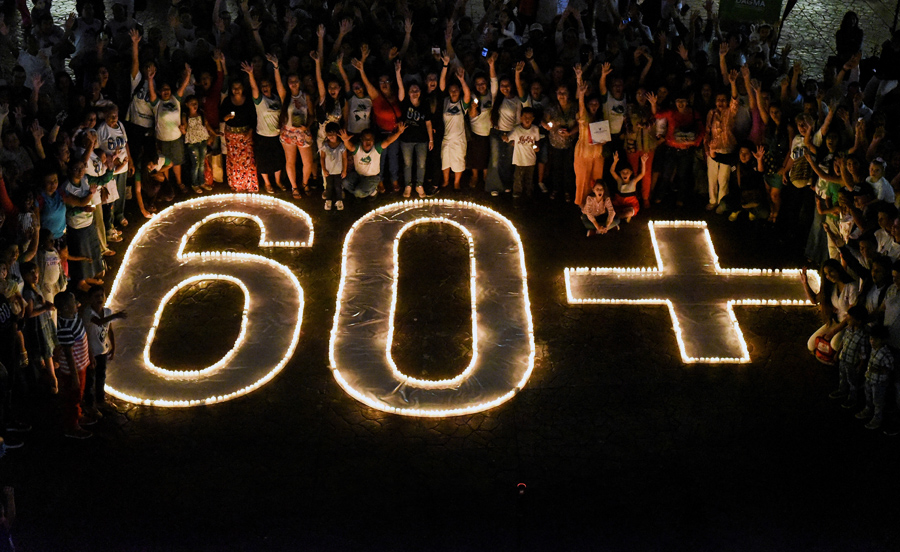Landmark buildings go dark to shine light on climate change
China Daily | Updated: 2018-03-26 10:18

LONDON - In Paris, the Eiffel Tower went dark. In London, a kaleidoscope of famous sites switched off their lights - Tower Bridge, Big Ben, Piccadilly Circus, Buckingham Palace, the London Eye.
That scene was repeated over and over across the world on Saturday night: at Sydney's Opera House; at New Delhi's great arch; at Kuala Lumpur's Petronas Towers; at Edinburgh Castle in Scotland; at Berlin's Brandenburg Gate; at St. Basil's Cathedral in Moscow; at the Empire State Building in New York.
It lasted for just an hour and its power is purely symbolic. But in countries around the world, at 8:30 pm, people switched off their lights for Earth Hour, a global call for international unity on the importance of addressing climate change.
Begun in Sydney in 2007, Earth Hour has spread to more than 180 countries, with tens of millions of people joining in, from turning off their own porch lights to letting the grand sites like the Opera House go dark.
In Paris, the Eiffel Tower plunged into darkness as President Emmanuel Macron urged people to join in and "show you are willing to join the fight for nature".
"The time for denial is long past. We are losing not only our battle against climate change, but also our battle against the collapse of biodiversity," he said on Twitter.
Moscow's Red Square also fell dark and the Russian section of the International Space Station dipped its lights, the Ria Novosti news agency said.
Images from across Asia showed buildings including Kuala Lumpur's Petronas Towers, as well as the famous harbor skylines of Hong Kong and Singapore, blacking out to mark the occasion.
These 60 minutes are "an opportunity" to shift "the consumption culture and behavior change toward sustainability", Indian Environment Minister Harsh Vardhan said.
All this happens and yet many people, of course, barely notice.
Around India Gate, New Delhi's monument to the Indian dead in World War I, thousands embraced the city's nightly warm-weather ritual on Saturday. They bought ice cream and cheap plastic trinkets. Young children rode in electric carts that their parents rented for a few minutes at a stretch.
But for an hour the arch stayed dark, a silent call for change.
In Jordan, the Royal Society for the Conservation of Nature arranged 11,440 candles on a hilltop in the capital of Amman, establishing a Guinness World Record for the largest candle mosaic.
The candles also spelled the Earth Hour motto of "60+". However, attempts to light the candles largely failed because of wind on the hilltop, which is close to the city's landmark, the Amman Citadel.
UN Secretary-General Antonio Guterres said the event "comes at a time of huge pressure on people and planet alike".
"Resources and ecosystems across the world are under assault. Earth Hour is an opportunity to show our resolve to change."
Ap - Afp
























